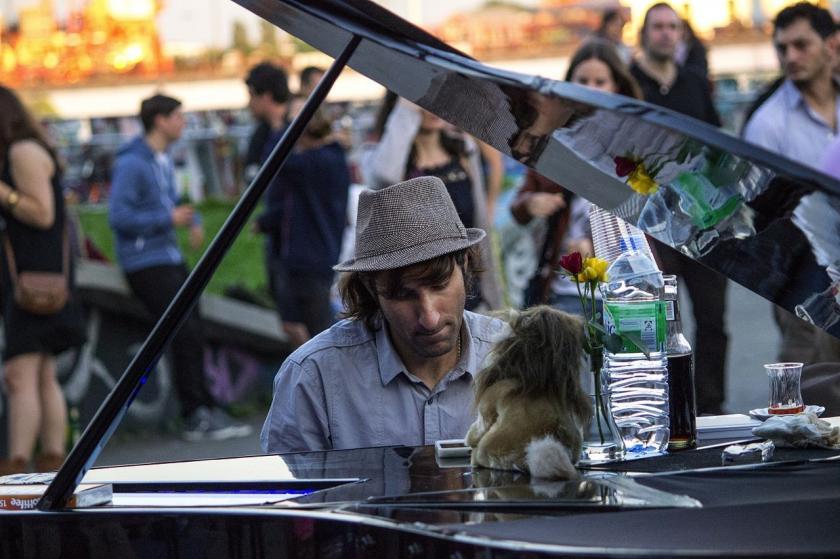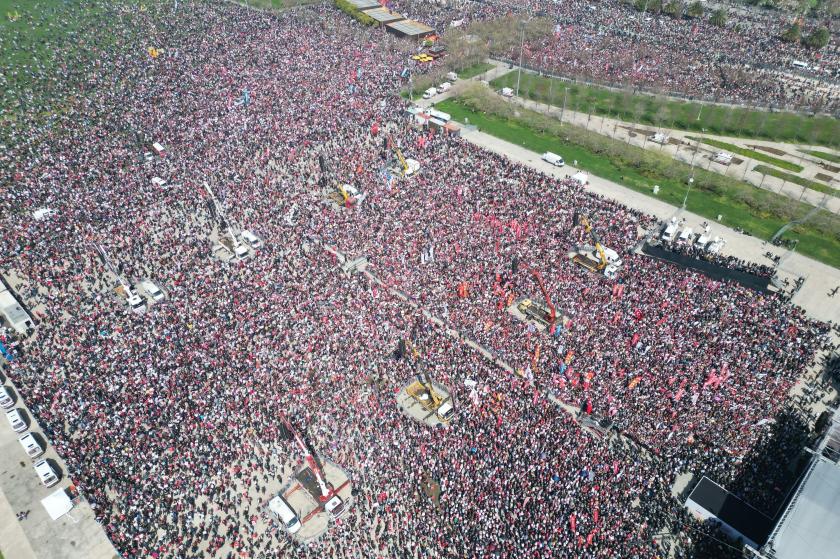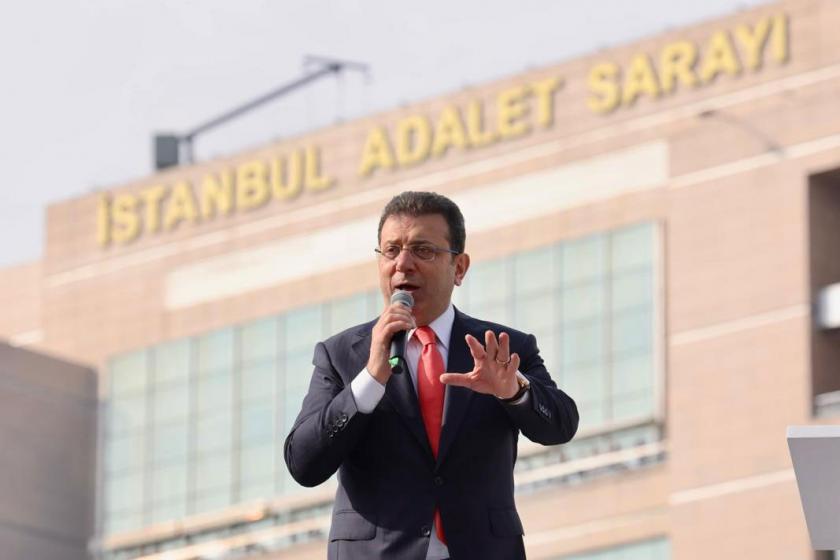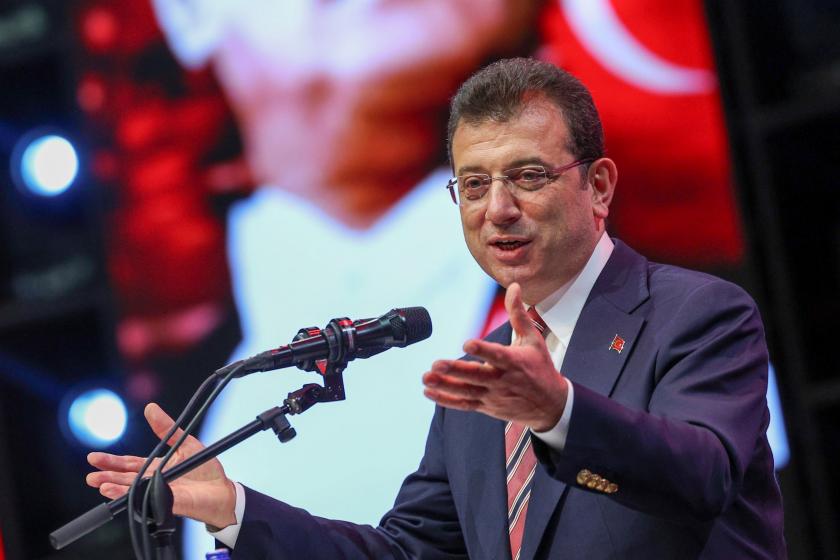The struggle for democratic rights and elections in Turkey

A. Cihan Soylu

Fotoğraf: DHA
“Democratic freedoms are hard won and easily lost. Rights secured after generations of struggle – by citizens risking their safety, liberty and, indeed, lives – can be stripped away in weeks with barely a murmur” wrote Owen Jones in The Guardian. Jones drew attention to the increasing curtailment of bourgeois democratic rights in Britain and emphasized the importance of standing up against it.
In a period of strikes and resistances by hundreds of thousands of workers and labourers against the monopolist attack, the bourgeois power's increasing political repression does not contradict the logic, character, and spirit of the relations between the opposing classes. This is the bourgeois democratic expression of monopoly interests. The sovereign's democracy is the expression of his interests. The rhetoric of democracy for all is a deception under conditions of exploitative society. The working class can force the bourgeois class and the ruling apparatus to make concessions and enjoy bourgeois democratic rights to the extent that it struggles through class politics and by showing the ability to take other oppressed laborers with it, to the extent that it puts pressure on the bourgeois class and the ruling apparatus through its struggle, to the extent that it forces it take a step back.
The exploited and oppressed in all capitalist countries, without exception, face this condition much more clearly today.
The liquidation of socialism in the countries where it was/is being built, the repulsion of the workers' movement and the revolutionary parties of the class have enabled the monopoly reaction, imperialism and international capital to gain positions in all countries and to reinforce their hegemony over the peoples together with their extensions/collaborators in these countries. For more than 40 years, finance capital and the monopolies and their state apparatus have been waging a war in each country, in economic, social, political, cultural and military fields, to confine them to the laboratories of reforming society.
This general offensive has produced new wars. Various countries have been subjugated, in some they have been plunged into chaos by provoking internal turmoil and conflicts. But in almost all of them militarism and political reaction have gained strength. Armaments expenditure, totalling 2 trillion dollars, broken an all-time record.
Under such conditions, the bourgeoisie could not and should not be expected to spontaneously expand the use of bourgeois democratic rights and accept them as rights that workers and laborers also benefit from.
In order to repel anti-democratic reactionary and fascist attacks, to achieve relative improvements in working and living conditions, to overcome the obstacles to the right to organise, to be able to enjoy bourgeois democratic rights, there is a need for the struggle to gain strength and spread, to enter a new period of mutually reinforcing rise not only in individual countries but also internationally. It is clear that the bourgeoisie and the monopoly reaction will not remain unresponsive to this and will oppose it with all its power and means. But there is no other way not to be oppressed.
Let's turn to Turkey: All the critical developments up to the present day have shown that the course of relations between the state administration and the masses of the people in Turkey, a country with a social composition, history of struggle and form of government incomparable to the UK or any other country in Europe, has, to use a very general term, peculiar characteristics. The fact that it is a multinational country, that the sovereign national bourgeoisie determines the history of the formation of the national psyche by placing the masses under the siege of chauvinist nationalism and Islamic ideology, the attribution of sanctity to the state, and the fact that this is seen as a value that can be embraced not only by the bourgeois petty bourgeoisie but also by an insignificant part of the working people, is an important factor in the cultural and political preferences and behaviours of the workers and labourers.
For nearly a century, the rulers of Turkey have been using the weapon of separatism as a barricade against the unification of the masses of the people and they have been effective. The Kurdish question is a handle of the Turkish reaction. The 'state class benefits the most from the fact that it remains unsolved! Add the Arab question to this, which has always existed in one form or another, but has been concretized as a product of the expansionist-occupations foreign policy pursued in the last eleven years. The Alevi problem has existed in Anatolia since the time of Yavuz, one of the most brutal Ottoman sultans. Erdoğan's booing of Kılıçdaroğlu (himself an Alevi) in the election rallies cannot be explained by an individual “irrational” behaviour.
The 2023 elections brought these factual problems and realities to the fore once again: 21 years of oppression and attacks, Erdogan and AKP's terrorism discourse, militarism and the image of a strong Turkey, the presidential candidate and the party that received the most votes; the entry of Hezbollah (not to be confused with Lebanese Hezbollah) into the Parliament under the name HUDA PAR, the support of the chauvinist nationalist politics indicated by the votes of MHP, İyi Party and (the presidential candidate) Sinan Oğan around 25% in total, shows that the "traditional" line in the bourgeois politics of Turkey has not been disturbed much. The great support for xenophobic policies is a concrete data. CHP continues to crawl at around 25% and its nationalism has no authority vis-à-vis the most reactionary elements who actually own it.
The attitude of the Kurdish electorate, united in the struggle for full equality of national rights, and the attitude of the democratic revolutionary, socialist or socialist policies of advanced workers, labourers, youth and women, which breaks the dominant rules and shows both the possibility and reality of another orientation. The support of the Labour and Freedom Alliance and the Socialist Power Alliance points to this combative attitude. Although it requires a separate and careful analysis, the support of TİP, especially among the advanced sections of the youth masses and Istanbul, and the votes received by the TKP and the Left Party in some Kurdish-populated cities where there are no organisations are among the data pointing to the potential for struggle.
The working class and laborers do not only act on the basis of economic facts, they also show political behaviour with their cultural, social and ideological ties. The politics of struggle against exploitation and oppression must be carried out taking all these factors into account.






Follow Evrensel